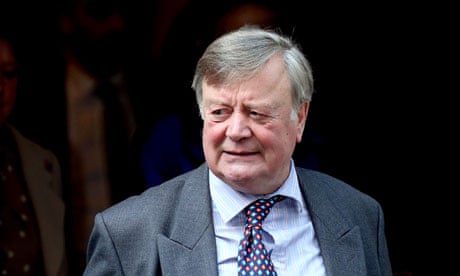Ken Clarke has either not done his homework or is being extraordinarily disingenuous in his defence of the government's justice and security bill, which is designed to prevent the disclosure of any sensitive or embarrassing information in the hands of MI5 and MI6.
Referring to the plan for proposed secret courts, he says: "I am on the right track ... Clearly any suggestion that these closed hearings would make anything secret that is in the public domain now is emphatically wrong." This is thoroughly misleading and he must know it.
Obviously anything now in the public domain cannot be put back in a bottle marked "secret". Presumably what he means is that the bill will not lead to the suppression of the kind of information which has been disclosed in the past. That is also seriously misleading.
Ministers say the bill is needed to prevent information from being disclosed in civil cases, in the face of demands for compensation from those people – specifically UK citizens and residents secretly rendered to Guantánamo Bay – suing the security and intelligence agencies. Clarke notes that such cases of alleged mistreatment have risen substantially as a result of Tony Blair's "disastrous 'war on terror'".
The government has recently agreed to a number of out-of-court settlements rather than have its dirty washing revealed in public. More cases are in the pipeline. The government now proposes that any evidence, or indeed rebuttal, of abuse could in future be heard in court – but only in secret.
But the bill is also the result of MI5, MI6, and CIA fury at the way senior judges have ruled that information showing how they colluded in the abuse and inhuman treatment – and, according to evidence heard in court, torture – of UK resident Binyam Mohamed should be disclosed.
Such damaging information in the hands of the security and intelligence agencies must never be disclosed again, MI5 and MI6 told ministers. The Justice and Security Bill is designed precisely to stop any such disclosures from happening in the future.
The kind of information that would be suppressed under the bill would include MI6 collusion in the rendition of Libyan dissidents to Colonel Gaddafi's secret police, and MI5 passing information to Gadaffi's officials about Libyan dissidents in the UK – evidence that came to light only because Nato bombs blew open the offices and filing cabinets of his security and intelligence agents.
Clarke argues that the bill "for the first time extend[s] civil justice into the most secret activities of the state". Leaving aside that there are precedents – such as the Special Immigration Appeal Commission (Siac) – the fact is that such "secret activities" under the bill would remain secret, with neither the claimant nor his or her lawyers able to hear, let alone rebut, any material provided by the spooks.
Clarke says an "independent advocate" would be in court to represent the claimants. In the consultation exercise prior to the bill's publication, the majority of these special advocates – security-cleared barristers who appear in sensitive cases already used in Siac hearings – described the government's proposals as "inherently unfair".
During Lords debates on the bill this summer, the government suggested that the mere fact of a secret court case taking place could be kept secret (on the model of superinjunctions), and that it could lead to people detained in prison and denied the ancient writ of habeas corpus.
Clarke says that, "Judges and not the executive will have to take the key decisions about whether a closed hearing is justified." However, the bill gives the judge little choice but to accept a minister's claims that information must be kept secret on grounds of "national security" – a claim which judges have traditionally (and perhaps understandably) have been very reluctant to question.
As David Anderson QC, the independent reviewer of terrorism legislation, pointed out when questioned in parliament in June: "Under the procedure devised in the bill, the judge does have the last word," he said. "The only difficulty is that that word is dictated to the judge by the secretary of state … The judge's hands are effectively tied."
"I am instinctively liberal," says Clarke. His liberal reputation is no doubt why David Cameron has ensured he remains responsible for the bill though he is no longer justice secretary.
He appears to be setting aside his liberal instincts, just as the Liberal Democrat conference threatens to do next week in Brighton. The latest conference agenda reveals an attempt to quash a motion calling for the withdrawal of the bill.
The original motion called on all Lib Dem MPs to oppose the measure. An amendment has now been tabled backing the bill, and saying only that secret court hearings should be used as a "last resort" and "to the bare minimum necessary to safeguard national security". Such comforting but damagingly misleading words are precisely those deployed by Clarke and his fellow ministers.

